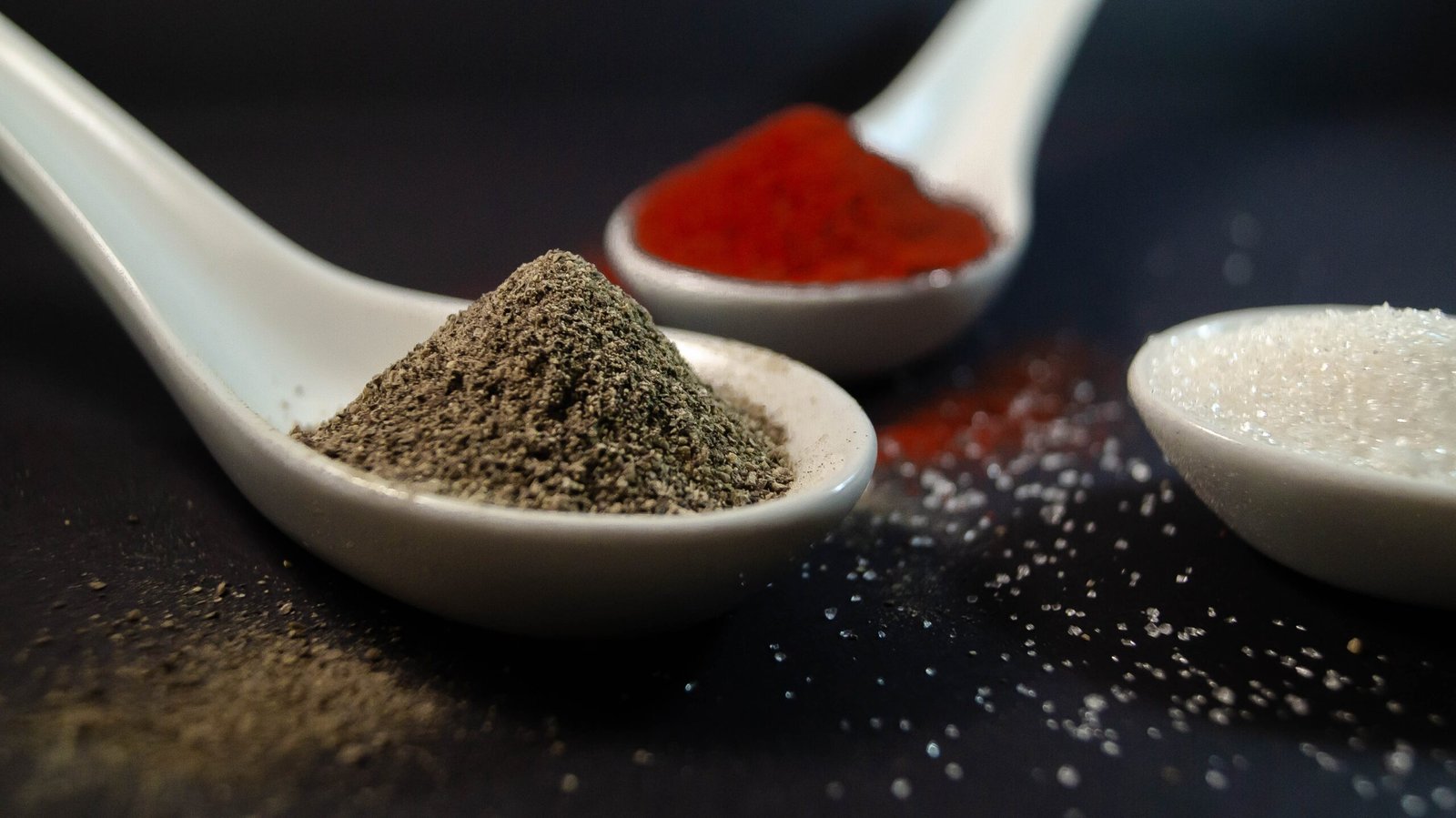Have you ever wondered how to take your meals from average to extraordinary with just a few simple steps? Look no further, because in this article we will be sharing some tasty seasoning tips that are sure to elevate your dishes to a whole new level of deliciousness. Not only will these tips help you achieve mouthwatering flavors, but they will also save you money by ensuring that you are making the most out of the ingredients you already have. So get ready to discover the secrets to proper seasoning and transform your meals into culinary masterpieces!
Tasty Seasoning Tips

This image is property of images.unsplash.com.
Understanding the Importance of Proper Seasoning
When it comes to cooking, proper seasoning plays a vital role in enhancing the flavors of your dishes. Seasoning doesn’t only mean adding salt and pepper; it involves a combination of various herbs, spices, acids, and other flavor-boosting ingredients. By mastering the art of seasoning, you can elevate even the simplest of ingredients into a delicious culinary masterpiece.
Exploring Different Types of Seasonings
Before diving into the world of seasoning, it’s essential to understand the different types available. Herbs, spices, acids, and umami-boosting ingredients are all key players when it comes to adding flavor to your meals. Herbs such as basil, oregano, thyme, and rosemary bring freshness and complexity to dishes, while spices like paprika, cumin, cinnamon, and cloves add depth and warmth. Acids like lemon juice and vinegar brighten flavors, while umami-boosting ingredients such as soy sauce, fish sauce, and Parmesan cheese provide a savory richness to your meals.
This image is property of images.unsplash.com.
Finding the Right Balance of Flavors
Achieving the perfect balance of flavors is the secret behind tantalizing dishes. It’s important to strike a harmony between sweet, sour, salty, bitter, and umami flavors. By understanding the role each component plays, you can adjust the amounts or experiment with different combinations to create the desired taste. Don’t be afraid to start with small amounts of seasoning and gradually increase until you reach the optimal balance that pleases your taste buds.
Enhancing Flavor with Herbs and Spices
Herbs and spices are the heart and soul of seasoning. They add complexity, aroma, and depth to your dishes. Experimenting with different combinations of herbs and spices can lead to exciting flavors that will keep your meals interesting. For example, a dash of cayenne pepper can add a subtle heat to your Mexican dishes, while a sprinkle of cinnamon can lend a warm and comforting note to your baked goods. Get creative and explore the endless possibilities that herbs and spices offer.

This image is property of images.unsplash.com.
Marinating for Maximum Flavor
Marinating is a fantastic technique to infuse flavors into your ingredients, particularly meats and vegetables. A marinade is a mixture of seasonings, acids, and oils that tenderize and flavor your food. The longer you marinate, the more pronounced the flavors will become. For tender meats, like steak or chicken, marinating for a few hours or even overnight can work wonders. Experiment with different marinades, incorporating herbs, spices, acidic ingredients, and oils to create delectable flavor profiles.
Creating Homemade Seasoning Blends
While store-bought seasoning blends are convenient, creating your own blends can be both economical and rewarding. By making your own seasoning blends, you have control over the ingredients and can customize them to your taste preferences. Start with a base of salt and pepper, and then add your favorite herbs and spices to create unique blends for different cuisines or specific dishes. Having a few homemade seasoning blends on hand will save you time and money while allowing you to add a personal touch to your cooking.
Using Salt Wisely
Salt is a fundamental seasoning that brings out the natural flavors in ingredients. However, it’s important to use it judiciously to avoid overpowering your dishes. Remember to season in layers, adding salt gradually throughout the cooking process to ensure an even distribution of flavor. Taste your food as you go and make adjustments accordingly. Additionally, consider using different types of salt, such as sea salt, kosher salt, or flavored salts, to add a unique touch to your meals.
Experimenting with Acidic Seasonings
Acidic seasonings, such as citrus juice and vinegar, can brighten flavors and add a refreshing tang to your dishes. They balance richness and enhance the overall taste profile. When using acidic seasonings, start with small amounts and gradually increase to avoid overwhelming the dish. A squeeze of lemon juice can enliven a fish dish, while balsamic vinegar can add depth to roasted vegetables. Don’t be afraid to incorporate these zesty flavors to create a contrast that will excite your taste buds.
Utilizing Umami-Boosting Ingredients
Umami, often described as the fifth taste, adds a savory, mouthwatering element to your cooking. To enhance the umami flavors, consider incorporating ingredients such as soy sauce, fish sauce, Worcestershire sauce, or Parmesan cheese. These ingredients bring a rich, savory depth to your dishes and can transform a simple meal into a gourmet experience. Experiment with umami-boosting ingredients to add a satisfying complexity to your cooking repertoire.
Seasoning Techniques for Different Cuisines
Every cuisine has its own unique flavor profiles and seasoning techniques. Exploring various cuisines can expand your culinary repertoire and introduce you to exciting new tastes. Whether it’s mastering the art of using aromatic spices in Indian cuisine or balancing the delicate flavors of Japanese dishes with soy sauce and mirin, learning about different seasoning techniques will open up a world of possibilities in your kitchen. Embrace the flavors of various cuisines and let your taste buds embark on a delightful journey around the globe.
In conclusion, seasoning is a powerful tool that can elevate your dishes from ordinary to extraordinary. By understanding the importance of proper seasoning, exploring different types of seasonings, and finding the right balance of flavors, you can create delicious meals that will surprise and delight your friends and family. Experiment with herbs, spices, marinades, and homemade seasoning blends, while using salt, acidity, and umami-boosting ingredients wisely. Lastly, don’t forget to embrace the diverse seasoning techniques of different cuisines to add a touch of international flair to your cooking. So go ahead, get creative, and let your taste buds guide you on a flavorful culinary adventure. Happy seasoning!
